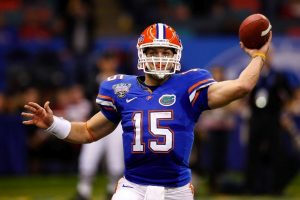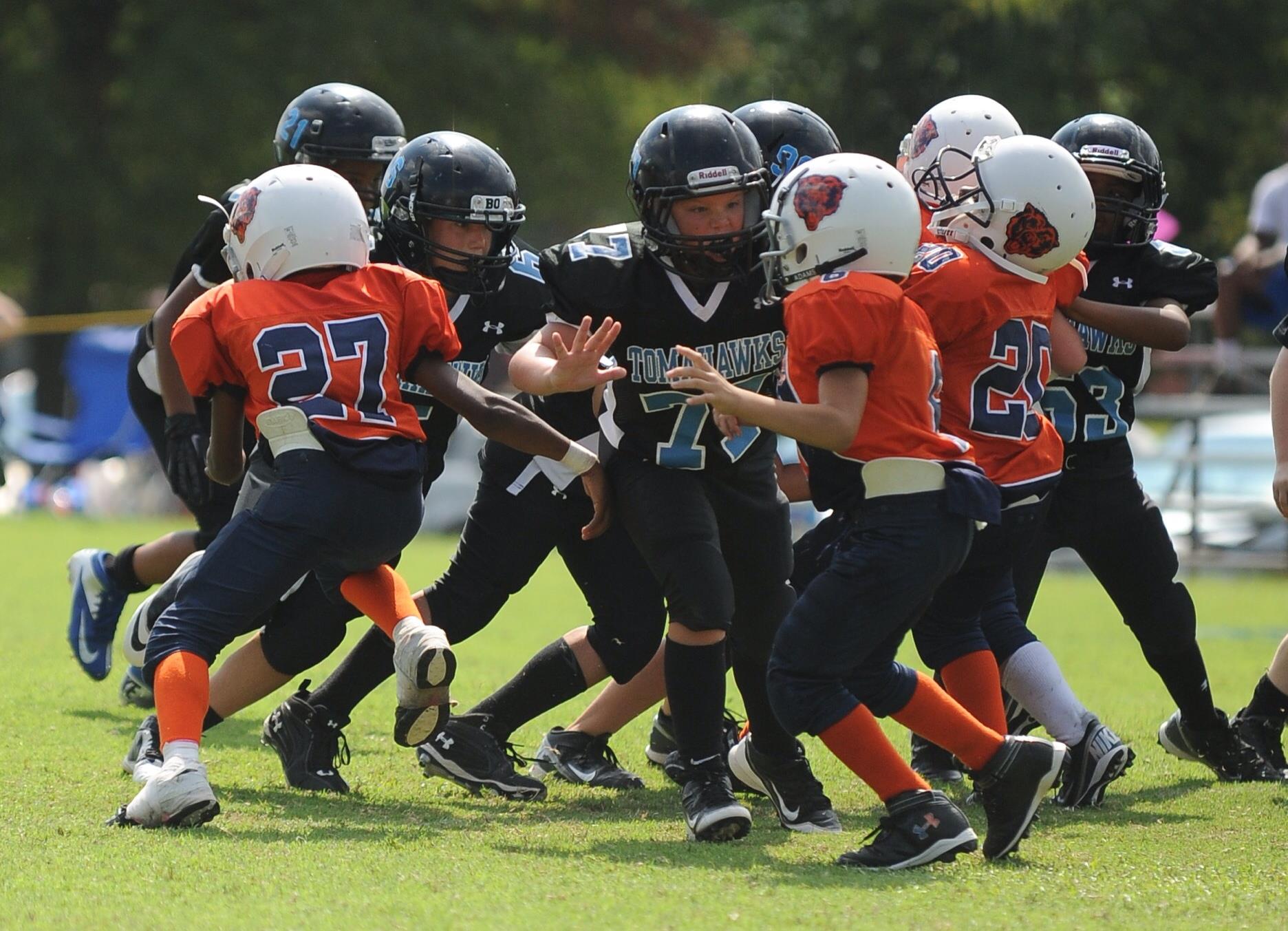By: Tucker Green
So that’s how the Season of Tebow ended.
Not with a bang but a long, deflating whimper.
The Denver Broncos, whose surprising season was defined by the polarizing play and outspoken beliefs of quarterback Tim Tebow, were routed and silenced 45-7 by the New England Patriots Saturday night in the AFC Divisional Round of the playoffs. It was a sudden end to a season where seemingly everyone had their opinion—and chose to share it—about Tebow. As a competitor, Tebow must have been disappointed by his season’s end. There isn’t much silver lining in such a lopsided loss, especially when you play in the NFL. In a way, though, it was a merciful end for Tebow, who may now finally begin to spend time without the entire nation talking about him. After all, for the past five months Tebow has been a lightning rod for a relentless media hell-bent on engineering stories in a year when, relatively, there hasn’t been a great deal to talk about.
To summarize, Tim Tebow is a quarterback for the Denver Broncos. He won two national championships and a Heisman trophy at the University of Florida, earning him the kind of praise that is reserved for the absolute elite of college football; in fact, many deemed him one of the greatest to ever play the game. But he was a risky prospect in the NFL. He doesn’t play like a prototype NFL quarterback. He’s built more like a burly fullback than a quarterback, and his throwing mechanics are more akin to your distant uncle in backyard football than the smooth movements of Tom Brady or Drew Brees. Almost no one in the NFL establishment predicted he would be a successful quarterback at the professional level. There has maybe never been a football player so universally praised on the college level that has gone on to be so universally criticized on the professional one.
Tebow is also a Christian. And it is for this reason that Tebow has become a household name, even for people who are oblivious to the difference between a touchdown and touchback. Tebow exudes and proclaims his faith in everything he does. Before, during, and after games he kneels on one knee in prayer, a gesture that has given rise to the mocking phenomenon known as “Tebowing” wherein people take pictures of themselves striking the pose in places around the world. He thanks God in almost every interview he gives. He regularly engages in charity work and spends his time before the game not in extra team meetings but meeting and playing with sick children and their families. During his time at Florida, he wore stickers on his face that cited scripture (John 3:16, specifically). Quite simply, he is the most outspoken Christian athlete of our generation, and for this he has been both praised and vilified on an unprecedented level.
And yet, there is nothing inherently special about Tim Tebow. In fact, the only special thing about Tebow is how he exemplifies the lengths the media will go to in order to cause debate and argument, to fan the flames of argument and contrive controversy.
To explain, we must look at Tebow separately as both a football player and a Christian. As a football player, he is nothing new. He may not be a prototypical quar
terback, but there is a long tradition of running quarterbacks like Tebow dating back to Roger Staubach in the 1970s. He is an almost impeccable team player. His statistics may be ugly, but he wins games (including 6 straight and 7 of 8 in the middle of the season, not to mention his memorable overtime victory in the wildcard playoff matchup against the Pittsburgh Steelers). He loves his offensive line, defers praise to others on his team, and avoids the prideful machismo that characterizes the majority of big-time NFL talent. It is certainly interesting to debate his merits as a pro player versus his accomplishments in the NCAA, but even in this regard he is fairly unremarkable. How many top-level elite players in the NCAA have turned out to be less-than-average in the pros? How many number one draft picks can you name from the past ten years? As a football player, Tebow is far from controversial. He is another in a long line of running-oriented quarterbacks, a solid team player with PR skills to boot, and a classic example of an NCAA star struggling to adjust in the NFL. Nothing about him as a football player merits the kind of intense scrutiny he has been subjugated to by the sports world.
Even as a Christian Tebow is overly examined and criticized. Tebow is vocal and outspoken, yes. But again, he simply belongs to the club of vocal religious athletes. St. Louis Rams quarterback Kurt Warner was an outspoken evangelical; so much so, in fact, that his coaches would reportedly tell him to spend less time with the Bible and more with the playbook. Pittsburgh Steelers star defensive back Troy Polamalu is a devout Orthodox Christian who prays after every play and takes religious pilgrimages to Greece and Turkey. And how many NFL games end with a group prayer in the middle of the field? Tebow himself is not a controversial Christian; his charity work and selflessness are key Christian ideals, and he has yet to be caught in the act of any kind of egregious crime or hypocritical behavior. Indeed, the controversy is that there is a loud Christian superstar in an age when such a thing is associated with radical conservative politicians and old-minded pastors who believe they can predict the Rapture. Tebow’s Christianity isn’t what makes him controversial; if it was, most of the sporting world would be subject to similar criticism. It’s merely the fact that he can’t go an interview without thanking God, and how this intimidates or disgusts certain segments of the public.
More than anything, Tebow represents the ability for the media to use a public figure as an impetus for debate, argument, and ratings when there is little else to discuss. There was no Michael Vick storyline in the NFL this year. There were no significant arrests or captivating scandals. The most successful, elite quarterbacks were Aaron Rodgers and Drew Brees—two men with admirable but banal personalities that do little to ignite a national conversation. Instead, the media relied on an average quarterback with strong faith to supply the storylines. It sparked a whole range of discussions. Sportscasters debated if Tebow represented a new guard in NFL quarterbacking. Political and religious pundits argued over whether Tebow went too far with his religious talk. Tebow led to a whole national conversation about the role of religion in society; he was discussed by GOP candidates and televangelists as much as ESPN broadcasters. From his time at the University of Florida, Tebow has long been an important, star athlete. But only this season and only this year did he become such a hot-button issue. Only now does he warrant such heated discussion. And it is obvious why. In a year without a captivating sports storyline, the media needed Tebow. And they needed him not because he himself is controversial, but because through him they could create controversy.

